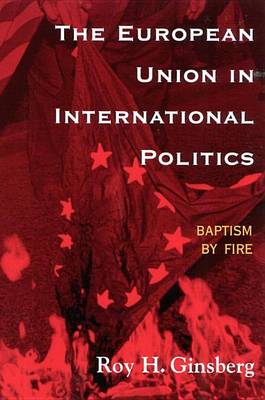New International Relations of Europe
1 total work
As the world looks to Europe to take on more responsibility in international politics and security in the devastating aftermath of Bosnia and Kosovo, this pathbreaking book provides the first systematic evaluation of the political impact of the European Union (EU) on a global scale. Little is known of the EU's international political influence, yet if the EU is to develop a viable Common Foreign and Security Policy, other actors will have to perceive the Union as an important player. Roy Ginsberg fills this vital gap by first linking the contexts and sources of EU foreign policy actions with the processes and outputs of decisionmaking and then examining how outsiders view the EU. Combining a masterly synthesis of the literature with invaluable primary interviews and case studies that document the reach of and limits to the EU's political influence, Ginsberg takes the study of EU foreign policy to a new level of analysis. By defining, describing, and explaining the different levels and degrees of external political impact, the book serves as a model for the advancement of conceptual knowledge, rigorous political science research, and state-of-the-art survey techniques and methodology. Scholars, students, and practitioners alike will find this rounded and nuanced work indispensable for understanding EU involvement in international politics seen from the perspective of non-EU players, particularly after the war in Kosovo; the enactment of the Treaty of Amsterdam; the Irish "no" vote for the Treaty of Nice; and the efforts forged by the Europeans to operationalize the new political, security, and military committees associated with the European Security and Defense Policy.
